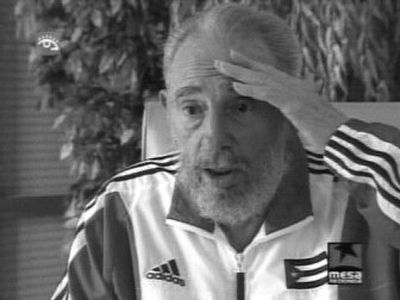In TV interview, Castro quiet on return to power

HAVANA – Speaking slowly and focusing on past memories rather than his recovery and future, a healthier looking Fidel Castro appeared on Cuban television Tuesday, giving the world its first long look at him since he fell ill and gave up power last summer.
The 80-year-old Castro’s beard and hair were well-trimmed and he looked rested and alert – no longer the picture of a man on the verge of death. But he did not speak of international issues and made no mention of any plans to return to running Cuba again.
Often shaking his arm and extending a finger for emphasis, Castro spoke for more than half an hour about Vietnam and his weekend meeting with the chief of that country’s Communist Party, Nong Duc Manh.
“How hot it was,” said Castro, recalling a 1973 visit to Vietnam, when the U.S. was still backing the south in a war there that the communist north eventually won. “It was like you jumped in a pool with clothes on,” he said of the humidity, which can also be brutal in Havana.
But his train of thought was often harder to follow than it had been before his illness. And the most notable thing about the hourlong interview with Randy Alonso, host of the government’s nightly “Round Table” program, was how much stronger and healthier Castro appeared than in previous glimpses of him.
Recovering in an undisclosed location, Castro has not been seen in public since before July 31, when he announced he was temporarily ceding power to a provisional government headed by his 76-year-old brother Raul, the defense minister. Life on the island has been little changed since, and top officials insist Castro’s health is improving.
Sometimes grinning in awe and sometimes listening intently, Alonso got Castro talking by asking open-ended questions in a soft tone to start.
After a few minutes, Castro needed little prompting, however, and began reading a tedious string of statistics about the number of teachers and other basic services in Vietnam from a notebook in his lap.